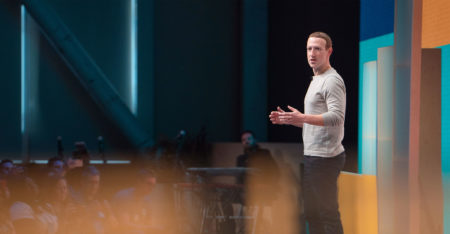Facebook CEO Mark Zuckerberg is betting the company’s future on video and disappearing posts called “stories”, not the company’s famous news feed. Investors are buying into the vision for now.
Browsing: Instagram
It wasn’t a dream or an exaggeration by cautious Facebook executives. The company’s financial results are weakening, just as executives warned they would a few months ago.
Instagram has a new boss: Adam Mosseri, who led Facebook’s news feed team for many years.
Facebook has unveiled a wireless virtual-reality headset called Oculus Quest, an attempt to help popularise the developing technology with a more mainstream audience.
The founders of Instagram are leaving Facebook after growing tensions with CEO Mark Zuckerberg over the direction of the photo-sharing app.
It’s been a bad year for Facebook. Okay, a truly terrible year. It just got even worse with the departure of Instagram founders Kevin Systrom and Mike Krieger.
Facebook on Wednesday reported second quarter sales and user growth that fell short of analysts’ projections. And the company told Wall Street the numbers won’t get any better this year.
Facebook was pummelled by public criticism over privacy issues during the second quarter. Don’t expect to see much evidence of that turmoil in Facebook’s earnings report on Wednesday.
Facebook’s Instagram is estimated to be worth more than US$100-billion (R1.4-trillion), if it were a standalone company, marking a 100-fold return for the app was purchased in 2012, according to data compiled by
Facebook’s photo-sharing app Instagram has reached a billion monthly active users. To spur future growth, the company announced a new feature: Instagram television. Anyone will be able to upload videos for Instagram’s new







